
Cyril M. Kornbluth was an American science fiction author and a member of the Futurians. He used a variety of pen-names, including Cecil Corwin, S. D. Gottesman, Edward J. Bellin, Kenneth Falconer, Walter C. Davies, Simon Eisner, Jordan Park, Arthur Cooke, Paul Dennis Lavond, and Scott Mariner.
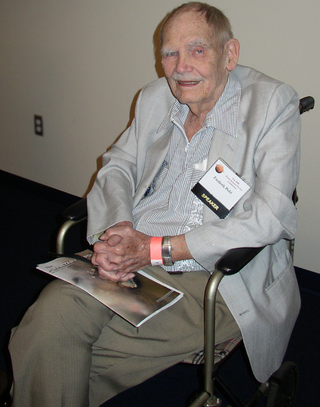
Frederik George Pohl Jr. was an American science-fiction writer, editor, and fan, with a career spanning nearly 75 years—from his first published work, the 1937 poem "Elegy to a Dead Satellite: Luna", to the 2011 novel All the Lives He Led.
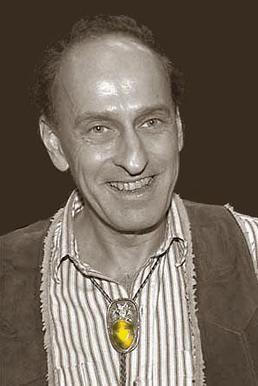
Roger Joseph Zelazny was an American poet and writer of fantasy and science fiction short stories and novels, best known for The Chronicles of Amber. He won the Nebula Award three times and the Hugo Award six times, including two Hugos for novels: the serialized novel ...And Call Me Conrad (1965), subsequently published under the title This Immortal (1966) and then the novel Lord of Light (1967).
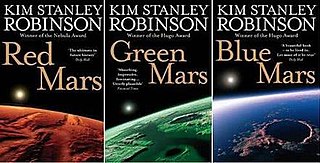
The Mars trilogy is a series of science fiction novels by Kim Stanley Robinson that chronicles the settlement and terraforming of the planet Mars through the personal and detailed viewpoints of a wide variety of characters spanning almost two centuries. The events of the book span from 2026 to 2212, approximately more than 187 years. Ultimately more utopian than dystopian, the story focuses on egalitarian, sociological, and scientific advances made on Mars, while Earth suffers from overpopulation and ecological disaster.
The Heechee Saga, also known as the Gateway series, is a series of science fiction novels and short stories by Frederik Pohl. The Heechee are an advanced alien race that visited the Solar System hundreds of millennia ago and then mysteriously disappeared. They left behind bases containing artifacts, including working starships, which are discovered and exploited by humanity.
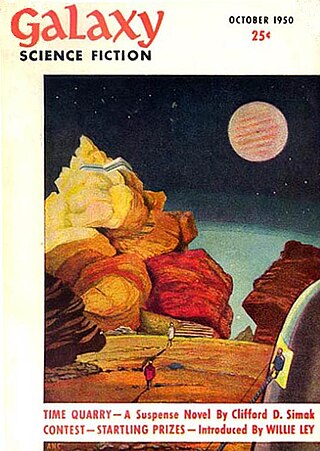
Galaxy Science Fiction was an American digest-size science fiction magazine, published in Boston from 1950 to 1980. It was founded by a French-Italian company, World Editions, which was looking to break into the American market. World Editions hired as editor H. L. Gold, who rapidly made Galaxy the leading science fiction magazine of its time, focusing on stories about social issues rather than technology.
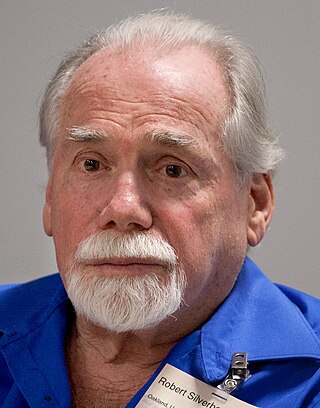
Robert Silverberg is a prolific American science fiction author and editor. He is a multiple winner of both Hugo and Nebula Awards, a member of the Science Fiction and Fantasy Hall of Fame, and a Grand Master of SF since 2004.
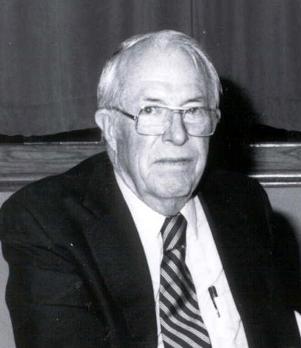
John Stewart Williamson, who wrote as Jack Williamson, was an American science fiction writer, one of several called the "Dean of Science Fiction". He is also credited with one of the first uses of the term genetic engineering. Early in his career he sometimes used the pseudonyms Will Stewart and Nils O. Sonderlund.

Richard Allen Lupoff was an American science-fiction and mystery author, who also wrote humor, satire, nonfiction and reviews. In addition to his two dozen novels and more than 40 short stories, he also edited science-fantasy anthologies. He was an expert on the writing of Edgar Rice Burroughs, and had an equally strong interest in H. P. Lovecraft. He also co-edited the non-fiction anthology All in Color For a Dime, which has been described as "the very first published volume dedicated to comic book criticism"; as well as its sequel, The Comic-Book Book.

Gateway is a 1977 science-fiction novel by American writer Frederik Pohl. It is the opening novel in the Heechee saga, with four sequels that followed. Gateway won the 1978 Hugo Award for Best Novel, the 1978 Locus Award for Best Novel, the 1977 Nebula Award for Best Novel, and the 1978 John W. Campbell Memorial Award for Best Science Fiction Novel. The novel was adapted into a computer game in 1992.

The Space Merchants is a 1952 science fiction novel by American writers Frederik Pohl and Cyril M. Kornbluth. Originally published in Galaxy Science Fiction magazine as a serial entitled Gravy Planet, the novel was first published as a single volume in 1953, and has sold heavily since. It deals satirically with a hyper-developed consumerism, seen through the eyes of an advertising executive. In 1984, Pohl published a sequel, The Merchants' War. In 2012, it was included in the Library of America omnibus American Science Fiction: Four Classic Novels 1953–1956. Pohl revised the original novel in 2011 with added material and more contemporary references.
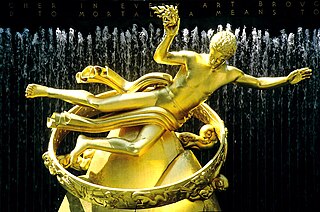
Pantropy is a hypothetical process of space habitation or space colonization in which, rather than terraforming other planets or building space habitats suitable for human habitation, humans are modified to be able to thrive in the existing environment. The term was coined by science fiction author James Blish, who wrote a series of short stories based on the idea.

The Best Science Fiction of the Year #6 is an anthology of science fiction short stories edited by Terry Carr, the sixth volume in a series of sixteen. It was first published in paperback by Del Rey Books and in hardcover by Holt, Rinehart and Winston in July 1977.

"The Gold at the Starbow's End" is a science fiction novella by American writer Frederik Pohl. Originally published in the March 1972 issue of Analog Science Fiction/Science Fact, it was nominated for both the 1973 Hugo Award for Best Novella and the 1973 Nebula Award for Best Novella. It did win the 1973 Locus Award for Best Novella.
A list of works by, or about, the American science fiction author Larry Niven.
This is an incomplete list of works by American space opera and science fiction author Frederik Pohl, including co-authored works.

Nebula Awards 28 is an anthology of award winning science fiction short works edited by James Morrow, the third of three successive volumes under his editorship. It was first published in hardcover and trade paperback by Harcourt Brace in April 1994. The book has also been translated into Polish.

Nebula Winners Fourteen is an anthology of award winning science fiction short works edited by Frederik Pohl. It was first published in hardcover by Harper & Row in August 1980. The first British edition was published in hardcover by W. H. Allen in April 1981. Paperback editions followed from Star in the U.K. in March 1982 and Bantam Books in the U.S. in July 1982.
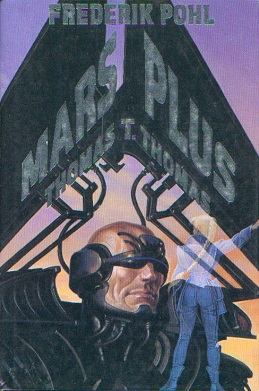
Mars Plus is a 1994 science fiction novel by American writer Frederik Pohl and Thomas T. Thomas. It is the sequel to Pohl's 1976 novel Man Plus, which is about a cyborg, Roger Torraway, who is designed to operate in the harsh Martian environment, so that humans can start to colonize Mars. Mars Plus is set fifty years after the first novel. Young Demeter Coghlan travels to Mars, now settled by humans and cyborgs, and finds herself amidst a rebellion by the colonists.

The Best of Frederik Pohl is a collection of science fiction short stories by American author Frederik Pohl, edited by Lester del Rey. It was first published in hardcover by Nelson Doubleday in March 1975 as a selection of its Science Fiction Book Club, and in paperback by Ballantine Books in June of the same year as a volume in its Classic Library of Science Fiction, and reprinted in April 1976. The book was reissued in hardcover by Taplinger in 1977. The first British edition was issued in Hardcover in January 1977 by Sidgwick & Jackson, which later gathered it together with The Best of Harry Harrison (1976) into the omnibus volume Science Fiction Special 29 (1978). It has also been translated into Italian and German.















